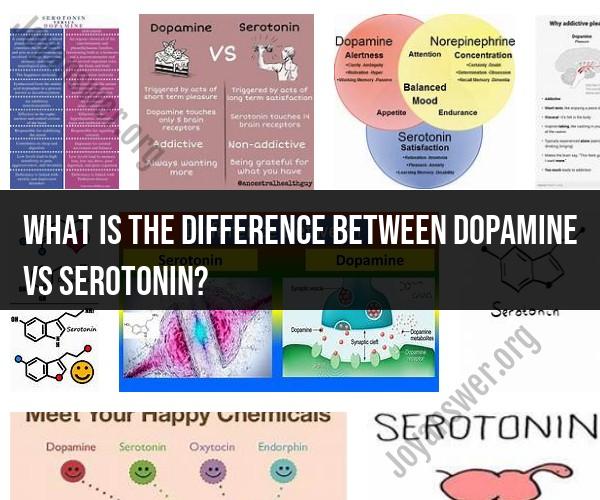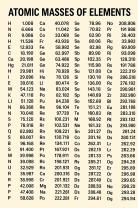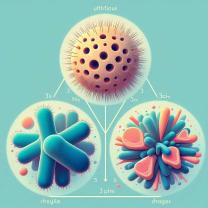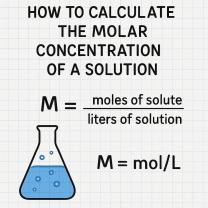What is the difference between dopamine vs serotonin?
Dopamine and serotonin are two distinct neurotransmitters in the brain, and they have different functions and effects. Here are the key differences between dopamine and serotonin:
Dopamine:
Function: Dopamine is often associated with the brain's reward system and is involved in feelings of pleasure, motivation, and reinforcement.
Mood and Emotion: Dopamine plays a role in regulating mood and emotional responses. It can influence feelings of happiness and excitement.
Reward and Pleasure: Dopamine is released in response to pleasurable activities and rewards, such as eating, exercising, or receiving positive feedback.
Motivation: Dopamine is associated with motivation and goal-directed behavior. It drives individuals to pursue rewards and take actions to achieve their goals.
Motor Function: Dopamine is critical for motor control. A deficiency in dopamine can lead to movement disorders, such as Parkinson's disease.
Learning and Memory: Dopamine is involved in learning and memory processes, particularly when it comes to associating actions with rewards or punishments.
Addiction: Dysregulation of dopamine is implicated in addiction, as it can lead to the reinforcement of drug-seeking behaviors.
Serotonin:
Function: Serotonin is primarily associated with regulating mood, emotions, and overall well-being.
Mood Regulation: Serotonin plays a central role in mood regulation and is often referred to as the "feel-good" neurotransmitter. Adequate levels are associated with feelings of happiness and contentment.
Sleep: Serotonin helps regulate the sleep-wake cycle and contributes to the quality of sleep. It promotes restful sleep.
Appetite and Digestion: Serotonin is involved in controlling appetite and digestion. It can influence feelings of fullness and satisfaction after eating.
Social Behavior: Serotonin may influence social behavior and social cognition, affecting interactions and empathy.
Pain Perception: Serotonin can modulate how the brain perceives and processes pain signals. It is involved in pain regulation.
Anxiety and Depression: Dysregulation of serotonin levels has been linked to mood disorders, including depression and anxiety. Many antidepressant medications aim to increase serotonin availability in the brain.
In summary, while both dopamine and serotonin contribute to aspects of mood and well-being, they have distinct functions and roles in the brain. Dopamine is more closely associated with reward, motivation, and reinforcement, whereas serotonin is primarily linked to mood regulation, sleep, appetite, and social behavior. Dysregulation of these neurotransmitters can lead to various neurological and psychiatric conditions, highlighting their importance in mental health and overall brain function.













